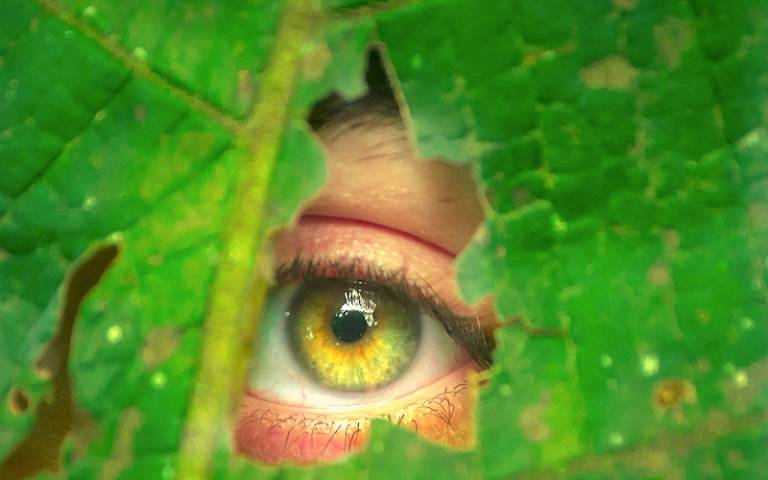UCL researchers publish new paper on improving recycling behaviour with human eye nudges
17 August 2023
Lorenzo Lotti and Giovanni Manfredi from the UCL Institute for Sustainable Resources have collaborated with Lory Barile from the University of Warwick on a new paper exploring how to encourage more proper sorting of waste items by people when they are recycling

Did you know that within the superior temporal cortex of the human brain, there are specific sub-cells responsible for identifying eyes, nose, mouth and cheeks?
Among those cells in the human brain, 64% are responsible for eye recognition. A new paper in Nature Scientific Reports by researchers from the UCL Institute for Sustainable Resources tests whether visual eye nudges help direct attention towards existing instructions designed to increase waste sorting accuracy.
The authors of the paper conducted a field experiment and analyse recycling behaviour under two different treatments, using eye images alone versus a treatment where eye images combined with pre-existing written instructions are employed to enhance recycling. They applied a 'visual nudge' on bins across UCL campus and collected data on the quality of recycling for a total of 38 audits for 23 bin receptacles selected for the experiment (2622 observations).
The research results showed that percentage errors in recycling sorting declined by 64%, 95%, and 58%, respectively in mixed-recycling, non-recycling, and food waste bins, but that this happened only when the nudge was combined with the pre-existing information. The treatment with just the eye nudge, by contrast, actually increased sorting errors for mixed recycling and food waste. The paper authors noted with interest that students were less likely to make mistakes when considering mixed recycling, while both students and staff seemed more likely to make mistakes when sorting waste in non-recycling bins.
The new research provides additional evidence on the relevance and effectiveness of low-cost interventions and easy-to-implement behavioural tools to change individuals’ actual sorting behaviour. Stimulating individuals’ attention towards visual and simple written instructions can help them engage more with recycling and thus reduce recycling mistakes.
The research which led to the publication by Lorenzo Lotti and Lory Barile depended upon successful collaboration with Giovanni Manfred, a former student of the UCL Institute for Sustainable Resources who made a valuable contribution to the endeavour. Giovanni worked across the summer on the data collection as part of his dissertation research and remained as part of the research team until publication.
Links
- Read the paper now by accessing it on the Nature Scientific webpage.
- Read more about the work of the Behavioural Environmental Economics team.
Image credit: pexels.com
 Close
Close

